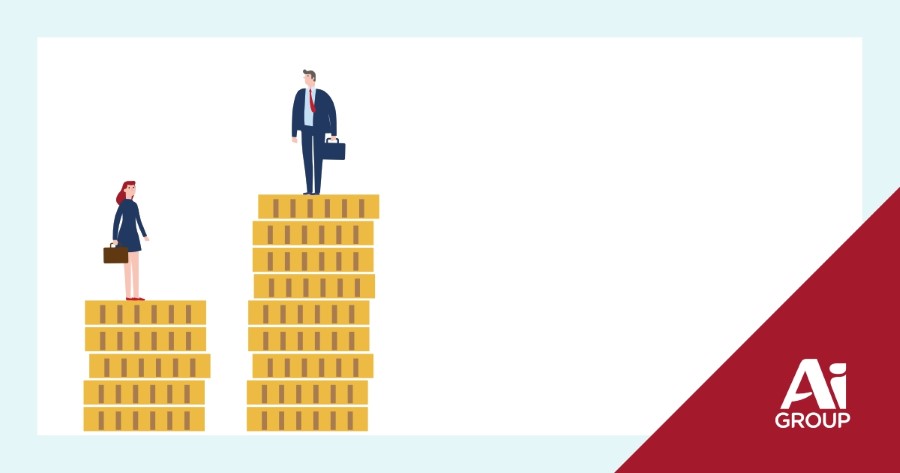
Today’s publishing of individual employer gender pay gaps gives large businesses and organisations a fresh opportunity to reflect on how they can continue to improve economic outcomes for female employees.
For the first time, the Workplace Gender Equality Agency (WGEA) has published median base salary and total remuneration gender pay gaps, along with gender composition per pay quartile, for private sector employers with 100 employees or more.
Yoness Blackmore, Ai Group’s Workplace Relations Policy and Knowledge Management Specialist, said: “WGEA has an important role in collecting, tracking and monitoring data about gender equality in larger workplaces.
“It is a rich data set that informs what employers can do to improve their own initiatives as well as policy outcomes.
“It may also be used by employers to inform their compliance strategies to satisfy the positive duty under the Sex Discrimination Act 1984 (Cth).”
The aim of publishing individual employer gender pay gaps is to accelerate action to close the gap — women earn on average less than men across all industries in Australia.
Public transparency and accountability help to bring focus to issues of workplace gender equality and can help motivate employers to take actions that drive a more equal experience for all employees, WGEA says.
“The day-to-day experience of all employees is improved if publication leads employers to act or to amplify action they’re already taking,” the agency says.
This year’s published results are based on information reported to WGEA for the 12 months to March 31, 2023.
Next year, WGEA will also report average employer gender pay gaps that include CEO, Head of Business and Casual Managers' remuneration data.
"Ai Group is working with the agency to streamline the reporting process to minimise the regulatory burden on employers, given it is an annual requirement," Ms Blackmore said.
Visit the WGEA Data Explorer for more information.
Ai Group Workplace Lawyers can assist members with their annual reporting obligations under the Workplace Gender Equality Act 2012 (Cth).
Our specialists can help with collating data submissions for upload to the WGEA portal and can help members to understand what their data means for their organisation and how they can address it.
We can also assist with effective internal and external communication strategies about results, including drafting supporting Employer Statements that give context about results.
Get in touch on 1300 55 45 81 or info@aigroupworkplacelawyers.com.au
Member advice: Changes to Employer reporting obligations under the Workplace Gender Equality Act 2012 (Cth) and WGEA to shortly publish gender pay gaps of individual employers.
Webinar: Accelerating change: Workplace gender equality
Blog post: How to prepare for gender pay gap deadline

Wendy Larter is Communications Manager at the Australian Industry Group. She has more than 20 years’ experience as a reporter, features writer, contributor and sub-editor for newspapers and magazines including The Courier-Mail in Brisbane and Metro, the News of the World, The Times and Elle in the UK.